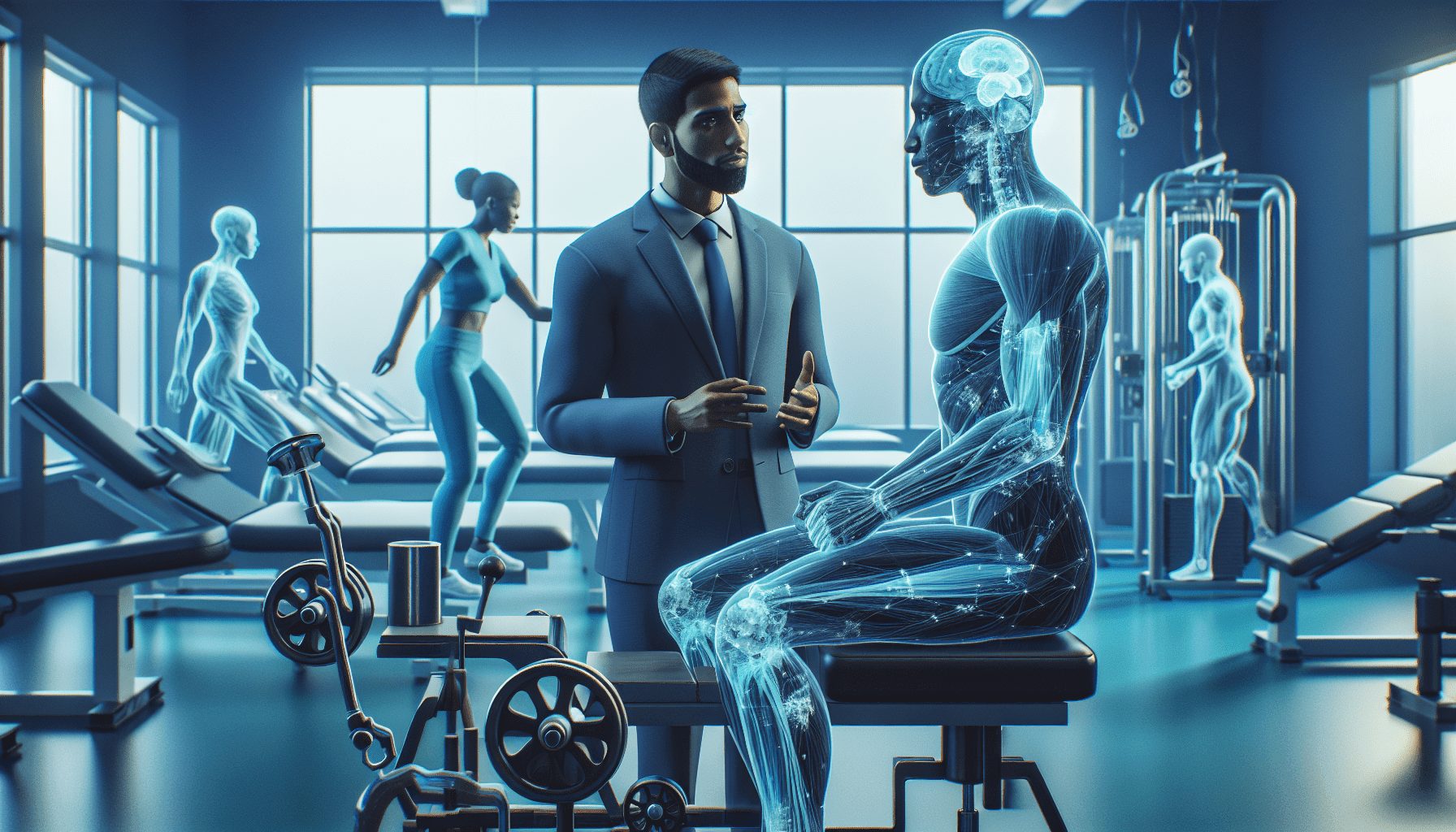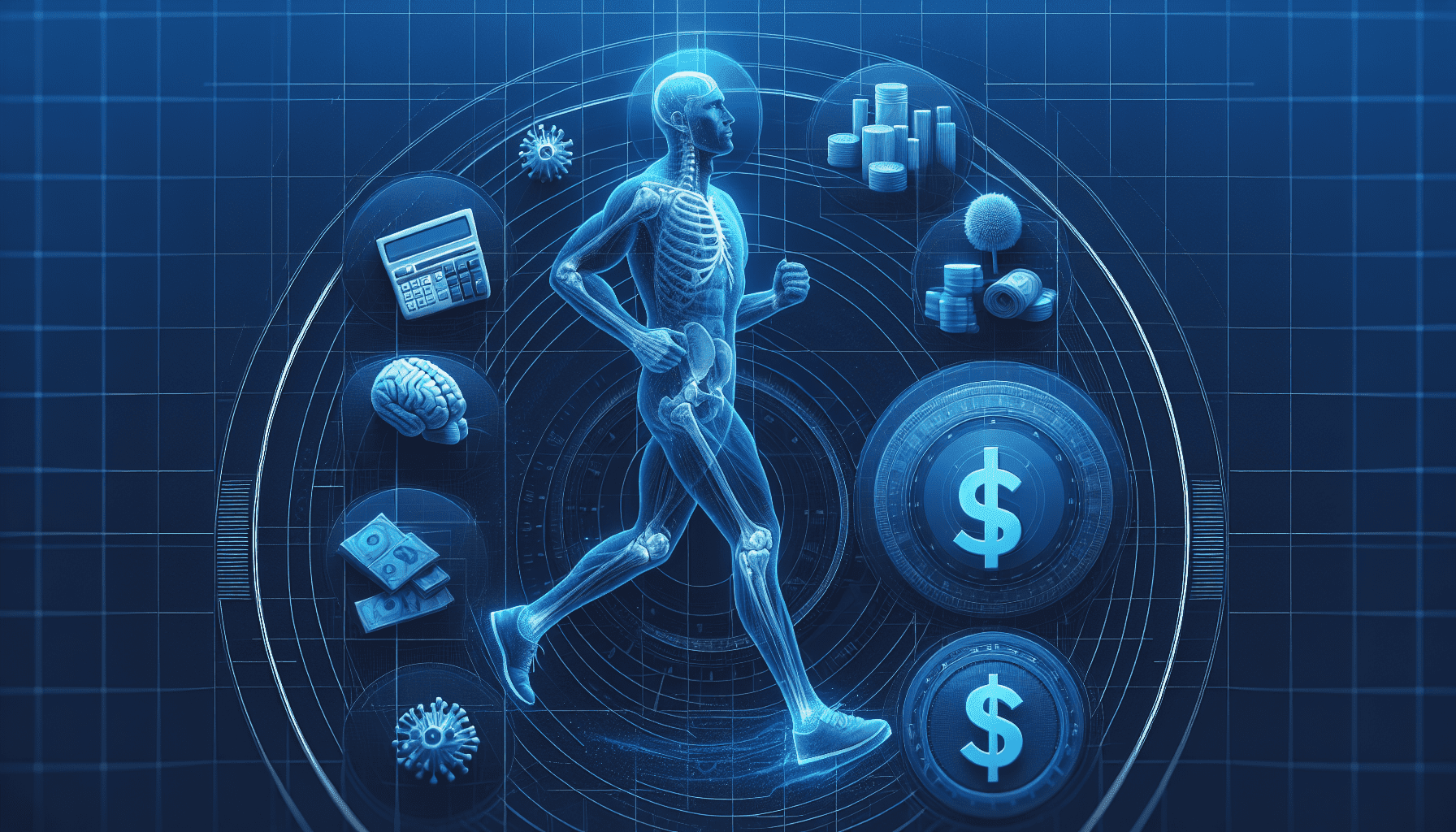Revolutionize Your Hiring Process with an AI Recruiting Platform
The Importance of Efficient Hiring Processes
In today’s competitive job market, companies constantly seek ways to streamline their hiring processes and find top talent quickly. Traditional recruitment methods, such as manual resume screening and time-consuming interviews, can be inefficient and result in missed opportunities for both employers and candidates. That’s where an AI recruiting platform comes into play, revolutionizing the way companies attract, assess, and hire candidates.
Efficiency is the key to success in any business endeavor, and hiring is no exception. An efficient hiring process saves time and resources and ensures that the right candidates are identified and hired promptly. Delayed hiring can lead to missed business opportunities and increased costs.
An AI recruiting platform is a cutting-edge technology that leverages artificial intelligence and machine learning algorithms to automate and optimize various aspects of the hiring process. By integrating AI into the recruitment workflow, companies can significantly enhance efficiency and make data-driven decisions.
This article will delve into the world of AI recruiting platforms, exploring their definition, benefits, key features, implementation strategies, and challenges. Whether an HR professional or a business owner, this comprehensive guide will equip you with the knowledge and insights needed to revolutionize your hiring process and stay ahead in the talent acquisition game.
So, let’s dive in and discover how an AI recruiting platform can transform how you hire!
What is an AI Recruiting Platform?
Definition and Overview
In today’s fast-paced and competitive job market, companies are constantly seeking ways to streamline their hiring processes and attract top talent. One innovative solution that has emerged is the AI recruiting platform.
An AI recruiting platform is a software tool that leverages artificial intelligence (AI) technology to automate and optimize various aspects of the recruitment process. By utilizing machine learning algorithms and natural language processing capabilities, these platforms can assist HR professionals in sourcing, screening, and selecting the most qualified candidates for a given position.
AI recruiting platforms offer many features and functionalities that aim to improve efficiency, reduce costs, and enhance the candidate experience. From automated job posting to resume parsing and matching, these platforms revolutionize how companies find and hire talented individuals.
How AI is Revolutionizing Recruitment
The emergence of AI technology in the recruitment industry has brought about significant advancements, revolutionizing how companies approach hiring. By leveraging the power of AI, recruiters and hiring managers can overcome many of the challenges associated with traditional recruitment methods.
One of the key ways AI is revolutionizing recruitment is by saving time and reducing costs. With the ability to automate repetitive and time-consuming tasks, such as sifting through resumes and scheduling interviews, AI recruiting platforms free up valuable time for HR professionals to focus on more strategic aspects of the hiring process. This not only speeds up the recruitment timeline but also helps to cut down on costs associated with manual labor.
Another area where AI has a profound impact is in enhancing candidate screening. Traditional candidate screening methods often involve manual review of resumes and cover letters, which can be biased and subjective. AI recruiting platforms, on the other hand, utilize advanced algorithms to analyze candidate profiles, identify critical skills and qualifications, and match them with specific job requirements. This ensures a more objective and accurate screening process and allows recruiters to identify top candidates more efficiently.
Furthermore, AI recruiting platforms improve the candidate experience by providing personalized interactions and timely communication. Through chatbots and virtual interviewing capabilities, candidates can receive instant responses to their queries and engage in virtual interviews at their convenience. This level of responsiveness and flexibility leaves a positive impression on candidates and helps attract top talent to the organization.
Lastly, AI recruiting platforms enable data-driven decision-making. By collecting and analyzing vast amounts of recruitment data, these platforms can provide valuable insights into the effectiveness of various recruitment strategies and help organizations make informed decisions. From identifying the most effective job boards to predicting the likelihood of a candidate’s success, AI-powered analytics empower recruiters to make data-backed decisions that drive better hiring outcomes.
In conclusion, AI recruiting platforms are transforming the recruitment landscape by streamlining processes, improving candidate screening, enhancing the candidate experience, and enabling data-driven decision-making. As technology advances, these platforms will play an increasingly vital role in helping companies attract and hire the best talent efficiently and cost-effectively.
Benefits of Using an AI Recruiting Platform
In today’s fast-paced business world, time and cost efficiency are paramount. This is especially true when it comes to the hiring process. Traditional recruitment methods can be time-consuming and expensive, often resulting in a lengthy and costly search for the right candidate. However, with the advent of AI recruiting platforms, organizations can revolutionize their hiring process, reaping many benefits.
Time and Cost Savings
One of the most significant advantages of using an AI recruiting platform is its tremendous time and cost savings. These platforms significantly streamline the hiring process by automating various tasks, such as resume screening and candidate matching. Instead of spending countless hours manually reviewing resumes and conducting initial screenings, AI recruiting platforms can handle these tasks in a fraction of the time. This allows HR professionals and hiring managers to focus on more strategic and value-added activities, such as interviewing and assessing top candidates. Additionally, the cost savings associated with automated processes can be substantial, as it eliminates the need for external recruitment agencies or excessive advertising expenses.
Enhanced Candidate Screening
Finding the right candidate for a job opening is critical to the hiring process. However, it can be daunting and time-consuming, especially with many applicants. This is where an AI recruiting platform truly shines. By leveraging advanced algorithms and machine learning capabilities, these platforms can quickly analyze resumes, cover letters, and other application materials. They can identify critical qualifications, skills, and experiences that match the requirements of the job posting, ensuring that only the most suitable candidates progress to the next stage. AI recruiting platforms can also detect patterns and trends in candidate data, allowing recruiters to identify top talent more efficiently.
Improved Candidate Experience
In today’s competitive job market, providing an exceptional candidate experience is crucial for attracting and retaining top talent. AI recruiting platforms significantly enhance the candidate experience throughout the hiring process. These platforms offer features such as automated email responses and personalized communication, ensuring that candidates receive timely updates and feedback. They also provide a user-friendly interface for submitting applications and tracking progress, making the overall experience more seamless and engaging. By leveraging technology to create a positive candidate experience, organizations can strengthen their employer brand and stand out from competitors.
Data-Driven Decision Making
In the era of big data, organizations have a wealth of information. However, harnessing this data and deriving meaningful insights can be challenging without the right tools. AI recruiting platforms leverage predictive analytics and machine learning algorithms to transform raw data into actionable intelligence. These platforms can identify patterns and trends by analyzing historical hiring data, enabling recruiters to make data-driven decisions. This data-driven approach improves the quality of hiring decisions and helps organizations optimize their recruitment strategies over time. With AI recruiting platforms, organizations can make informed choices based on objective insights rather than relying solely on intuition or gut feelings.
In conclusion, the benefits of using an AI recruiting platform are numerous and impactful. From saving time and costs to enhancing candidate screening, improving candidate experience, and enabling data-driven decision-making, these platforms have the potential to revolutionize the hiring process. By embracing the power of AI, organizations can streamline their recruitment efforts, attract top talent, and gain a competitive edge in the job market. So why wait? Explore the world of AI recruiting platforms and unlock the true potential of your hiring process.
Key Features of AI Recruiting Platforms
AI recruiting platforms offer a range of powerful features that streamline the hiring process and enhance the overall recruitment experience. These cutting-edge tools leverage artificial intelligence to automate various tasks, saving time and effort for HR professionals and recruiters. Let’s explore some key features that make AI recruiting platforms so effective.
Automated Job Posting and Applicant Tracking
One of the primary features of AI recruiting platforms is their ability to automate job posting and applicant tracking. With just a few clicks, recruiters can post job openings to multiple platforms, reaching a wider pool of candidates. This automation eliminates the need for manual posting and ensures that job listings are promptly published across various job boards and social media channels.
Furthermore, these platforms provide robust applicant tracking systems (ATS) that streamline hiring. Recruiters can easily manage and track candidates, review applications, and communicate with potential hires—all within a centralized platform. This automated approach to job posting and applicant tracking saves valuable time and effort, enabling recruiters to focus on more strategic aspects of the hiring process.
Resume Parsing and Matching
Another invaluable feature of AI recruiting platforms is their ability to parse and match resumes. Traditional manual resume screening can be time-consuming and prone to human error. However, AI recruiting platforms utilize advanced algorithms to extract relevant information from resumes, such as skills, qualifications, and experience.
Once the resumes are parsed, the platform matches candidates to job requirements based on predefined criteria. This intelligent matching process ensures that recruiters only consider candidates who closely align with the job specifications, saving them significant time and effort. By automating the resume screening process, recruiters can efficiently identify the most qualified candidates from a large pool of applicants.
Chatbot and Virtual Interviewing
AI recruiting platforms often feature chatbots and virtual interviewing capabilities, which serve as virtual assistants throughout the hiring process. Chatbots can engage with candidates, answer frequently asked questions, and provide real-time support. They can also schedule interviews, follow up with candidates, and provide status updates while providing a personalized experience.
Virtual interviewing, on the other hand, allows recruiters to conduct interviews remotely. AI-powered video interview platforms can analyze facial expressions, body language, and speech patterns to provide additional insights about candidates. These technologies save time and resources and enhance the candidate experience by offering a more convenient and user-friendly interview process.
Predictive Analytics and Machine Learning
AI recruiting platforms leverage predictive analytics and machine learning to improve the efficiency and effectiveness of the hiring process. These platforms can identify patterns and trends to predict candidate success and fit within an organization by analyzing historical data. This data-driven approach allows recruiters to make more informed decisions and select the most suitable candidates for a role.
Additionally, machine learning algorithms continuously learn from past hiring decisions, adapting and refining their recommendations over time. This iterative process helps recruiters make better-informed choices, leading to more successful hires and reduced employee turnover.
In conclusion, AI recruiting platforms offer many features that revolutionize the hiring process. From automated job posting and applicant tracking to resume parsing and matching, chatbot and virtual interviewing capabilities, and predictive analytics and machine learning, these tools significantly enhance recruitment efficiency and candidate experience. By embracing the power of AI, recruiters can streamline their processes, save time and resources, and ultimately make better hiring decisions.
Implementing an AI Recruiting Platform
Once you have recognized the potential benefits of implementing an AI recruiting platform for your hiring process, it’s important to understand how to integrate this technology into your workflow effectively. Implementing an AI recruiting platform involves several key steps, including assessing your needs, researching and choosing the right platform, and training and integration.
Assessing Your Needs
Before diving into AI recruiting, it’s crucial to assess your organization’s specific needs and challenges. Evaluate your current hiring process and identify areas where an AI recruiting platform can make a significant impact. Consider factors such as the volume of applicants you receive, the time and resources required for resume screening and candidate evaluation, and the overall efficiency of your recruitment workflow.
By understanding your unique requirements, you can better align your goals with the capabilities of an AI recruiting platform. This will enable you to make informed decisions and choose the solution that best fits your organization’s needs.
Researching and Choosing the Right Platform
Once you have assessed your needs, it’s time to research and select the right AI recruiting platform for your organization. With many options available in the market, it’s essential to conduct thorough research and evaluate various platforms based on their features, functionality, and user reviews.
Consider factors such as the platform’s ability to automate job posting and applicant tracking, the accuracy and efficiency of its resume parsing and matching capabilities, and its use of chatbots and virtual interviewing for seamless candidate interactions. Additionally, look for platforms that leverage predictive analytics and machine learning to provide valuable insights and optimize your recruitment process.
During your research, it’s also beneficial to seek recommendations from industry peers or consult with an AI recruitment agency like Engaged Headhunters to gain insights into their experiences and expertise in implementing AI in recruitment.
Training and Integration
Once you have selected the right AI recruiting platform, the next step is to ensure a smooth transition and successful integration within your organization. This involves training your team members to utilize the platform’s features and maximize its potential effectively.
Collaborate with the platform provider to schedule comprehensive training sessions that cover all aspects of the platform’s functionality. This will help your team members understand how to navigate the system, leverage its automation capabilities, and interpret the data-driven insights it provides.
Furthermore, ensure that the AI recruiting platform seamlessly integrates with your existing HR systems and workflows. This integration will enable a seamless data flow between platforms, eliminating the need for manual data entry and ensuring a streamlined recruitment process.
By investing time and effort into training and integration, you can ensure that your organization fully utilizes the capabilities of the AI recruiting platform. This will lead to improved efficiency, enhanced candidate experiences, and data-driven decision-making.
In conclusion, implementing an AI recruiting platform requires a systematic approach. By assessing your needs, researching and choosing the right platform, and investing in training and integration, you can revolutionize your hiring process and unlock the full potential of AI technology in recruitment. So, leap and embrace the future of hiring with confidence!
Challenges and Considerations
Ethical and Bias Concerns
Ethical and bias concerns arise when implementing an AI recruiting platform as with any technology that relies on data and algorithms. While AI has the potential to make hiring processes more efficient and objective, it is crucial to address the potential biases that can be embedded in the system.
One major concern is algorithmic bias, which occurs when the AI system favors or discriminates against certain groups based on gender, race, or age. If the training data used to develop the AI model is biased or incomplete, the system may inadvertently perpetuate discriminatory practices. This can lead to unfair hiring decisions and a lack of diversity within the workforce.
To mitigate these concerns, ensuring that the AI recruiting platform is designed with fairness and inclusivity in mind is essential. This can be achieved by carefully selecting the training data and regularly auditing the system for biases. Employers should also be transparent about using AI in hiring and provide avenues for candidates to address any concerns.
Maintaining the Human Touch
While AI can streamline and automate many aspects of the hiring process, it is essential to strike a balance and maintain the human touch. Candidates often appreciate the personal interaction and connection from interacting with a human recruiter.
AI can handle repetitive tasks such as resume screening and initial candidate assessments. However, it is crucial to ensure that candidates have opportunities to engage with recruiters and hiring managers, especially during the later stages of the hiring process. This can be achieved through virtual interviews or personalized follow-up interactions.
By combining AI’s efficiency with human interaction’s personal touch, organizations can create a hiring process that is both efficient and engaging for candidates.
Balancing Automation and Personalization
Another challenge when implementing an AI recruiting platform is balancing automation and personalization. While automation can save time and resources, it is essential to strike a balance and not sacrifice the personalized experience candidates expect.
AI can help streamline processes such as resume parsing, candidate matching, and interview scheduling. However, ensuring that the automation does not lead to a generic and impersonal candidate experience is crucial. Candidates value personalized communication and feedback throughout the hiring process.
Organizations should leverage AI to automate repetitive and administrative tasks to strike the right balance while still providing opportunities for personalized interactions. This can be achieved through chatbots for initial candidate engagement and follow-up communication, combined with customized emails or phone calls from human recruiters.
By finding the right mix of automation and personalization, organizations can enhance the candidate experience while improving the efficiency of their hiring processes.
In conclusion, while AI recruiting platforms offer numerous benefits, some challenges and considerations must be addressed. Ethical and bias concerns must be taken seriously to ensure fair and unbiased hiring practices. Maintaining the human touch is essential to creating a positive candidate experience, and finding the right balance between automation and personalization is key to optimizing the efficiency of the hiring process. By addressing these challenges, organizations can revolutionize their hiring processes with the help of AI.
Conclusion
In conclusion, implementing an AI recruiting platform can genuinely revolutionize your hiring process. By leveraging the power of artificial intelligence, you can streamline and optimize every step of recruitment, from job posting to candidate selection. The numerous benefits include significant time and cost savings, enhanced candidate screening, improved candidate experience, and data-driven decision-making.
One of the key features of AI recruiting platforms is automated job posting and applicant tracking. This eliminates the manual effort of posting jobs on various platforms and allows recruiters to track and manage applicants in one centralized system easily. Additionally, resume parsing and matching capabilities enable recruiters to quickly and accurately match candidates to job requirements, saving valuable time and effort.
Another valuable feature is the integration of chatbot and virtual interviewing technology. This allows for efficient and consistent candidate engagement outside traditional office hours. Candidates can interact with chatbots to get answers to their questions and participate in virtual interviews, providing a convenient and seamless experience.
Predictive analytics and machine learning are also essential features of AI recruiting platforms. These technologies analyze vast data to identify patterns and predict candidate performance and suitability. By leveraging these insights, recruiters can make more informed and data-driven hiring decisions, increasing the likelihood of finding the right fit for their organization.
Implementing an AI recruiting platform requires careful consideration and planning. It is essential to assess your needs and goals, research and choose the right platform that aligns with your requirements and provide adequate training to ensure successful integration into your existing recruitment processes.
While AI recruiting platforms offer many advantages, it is crucial to consider ethical and bias concerns. As AI technology evolves, there is a need for ongoing monitoring and assessment to ensure fairness and avoid any unintended biases in the recruitment process. It is also essential to balance automation and personalization, as human interaction and judgment are still crucial in assessing candidate fit and cultural alignment.
An AI recruiting platform can significantly transform and improve your hiring process. By leveraging the power of artificial intelligence, you can save time and costs, enhance candidate screening, provide a better candidate experience, and make data-driven decisions. As technology advances, embracing AI in recruitment is becoming increasingly essential for organizations to stay competitive in attracting and selecting top talent.
Explore our AI Recruiter and AI Candidate Sourcing services to learn more about how AI can revolutionize your hiring process. Our team at Engaged Headhunters is dedicated to helping you leverage the best AI recruiting software and tools to drive successful recruitment outcomes. Discover the best AI recruiting tools and stay ahead in the dynamic world of talent acquisition.






